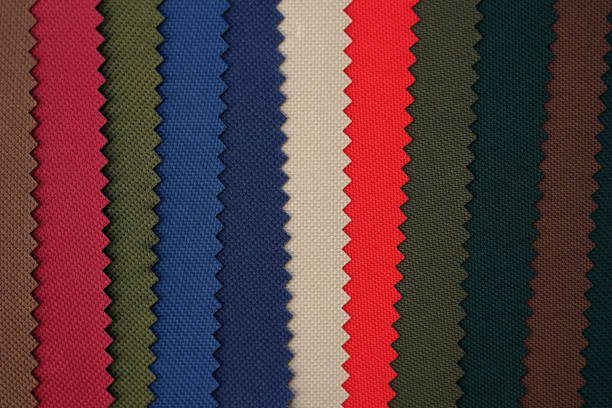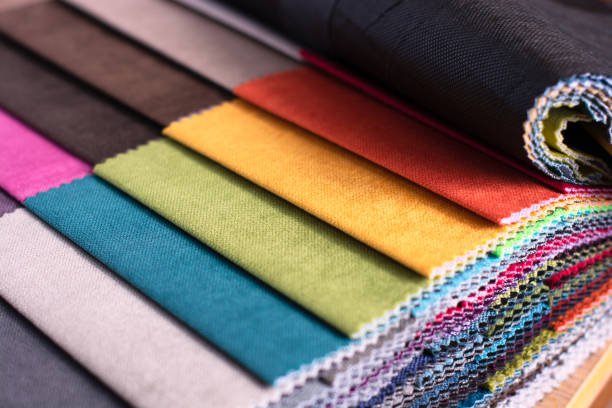What Materials Can Be Used To Make A Backpack?
Hey there backpack enthusiasts! Have you ever wondered what goes into making the perfect backpack? Well, buckle up and get ready to explore the wild world of backpack materials! From traditional to cutting-edge, there are a plethora of materials used in creating these essential carry-alls.
- Natural Materials: Cotton, Leather, Canvas;
- Synthetic Materials: Nylon, Polyester, Ripstop;
- Specialized Materials: Waterproof Materials, Reflective Materials, Anti-Theft Materials
- Sustainability and Eco-Friendly Materials: Recycled Materials, Organic Materials, Vegan Materials
In this article, we’ll take a closer look at some of the materials that can be used to make a backpack and what makes them unique. So, grab your backpack and let’s dive in!
Table of Contents
Importance of Materials in Backpacks
The materials used in a backpack determine its strength, flexibility, weight, water resistance, and overall comfort. Backpacks need to be durable enough to withstand regular use, carry heavy loads, and endure various weather conditions. Additionally, the right materials can add features such as water resistance, anti-theft protection, and reflective properties to enhance the backpack’s functionality and safety.
Common Materials Used in Backpacks
Backpacks can be made from a wide range of materials, depending on the intended use, budget, and environmental considerations. Let’s take a closer look at some of the commonly used materials in backpack manufacturing.
Natural Materials
When it comes to backpack materials, nature has a lot to offer. From rugged canvas to timeless leather, these materials have been used for centuries to create functional and fashionable.

Cotton
Cotton is a soft, breathable, and natural fiber that has been used for centuries to make backpacks. It is comfortable to wear, lightweight, and has excellent moisture-absorbing properties. Cotton backpacks are often favored for their natural and rustic look, making them a popular choice for casual or fashion-oriented backpacks.
Leather
Leather is a premium and durable material that has been used for backpacks for a long time. It is known for its timeless elegance, strength, and longevity. Leather backpacks are often used for professional or high-end purposes and are considered a luxury choice due to their high cost and maintenance requirements.


Canvas
Canvas is a heavy-duty, woven fabric that is made from cotton or a blend of cotton and synthetic fibers. It is known for its durability, water resistance, and ability to hold color well. Canvas backpacks are popular for outdoor and adventure activities as they can withstand rough use and harsh weather conditions.
Synthetic Materials
Synthetic materials are man-made and often used in backpacks for their durability, water resistance, and affordability.

Nylon
Nylon is a synthetic material that is lightweight, durable, and water-resistant, making it a popular choice for backpacks. It is known for its high tensile strength, abrasion resistance, and quick-drying properties. Nylon backpacks are commonly used for outdoor, sports, and travel purposes due to their ruggedness and versatility.
Polyester
Polyester is another synthetic material that is commonly used in backpacks due to its durability, lightweight, and affordability. It is known for its resistance to shrinking, stretching, and wrinkling, making it a low-maintenance option for backpacks. Polyester backpacks are widely used for school, work, and casual purposes due to their durability and wide availability.

Ripstop
Ripstop is a type of fabric that is made by weaving nylon or polyester threads together in a grid pattern, making it resistant to tearing and ripping. Ripstop materials are commonly used in backpacks to add extra strength and durability, making them ideal for outdoor and adventure activities where backpacks may be subjected to rough handling or extreme conditions.
Specialized Materials
Specialized materials are used in backpacks to provide specific functionalities or features that cater to particular needs or requirements.

Waterproof Materials
Waterproof materials such as laminated fabrics, coated nylon, or polyurethane-treated materials are commonly used in backpacks to protect the contents from moisture and ensure that the backpack remains dry in wet conditions. These materials are often used in backpacks designed for outdoor activities, travel, or daily commuting in rainy or humid environments.
Reflective Materials
Reflective materials are used in backpacks to enhance visibility and safety, especially during low-light or nighttime conditions. Reflective strips, tapes, or coatings are applied to backpacks to make them visible to others, such as drivers or cyclists, and reduce the risk of accidents. Reflective materials are commonly used in backpacks designed for commuting, cycling, or outdoor activities where visibility is crucial.

Anti-Theft Materials
Anti-theft materials are used in backpacks to provide additional security and protect against theft. These materials may include slash-resistant fabrics, hidden pockets, lockable zippers, or RFID-blocking technology to prevent unauthorized access or theft of belongings. Anti-theft materials are commonly used in backpacks designed for travel, urban commuting, or crowded environments where the risk of theft is higher.
Sustainability and Eco-Friendly Materials

As awareness about environmental concerns and sustainability grows, there is an increasing demand for backpacks made from eco-friendly and sustainable materials.
Recycled Materials
Recycled materials, such as recycled polyester, nylon, or plastic bottles, are used in backpacks to reduce the reliance on new resources and minimize waste. These materials are obtained from post-consumer or post-industrial sources and are processed to create new fabrics with reduced environmental impact. Backpacks made from recycled materials are becoming increasingly popular among environmentally-conscious consumers who prioritize sustainability.
Organic Materials
Organic materials, such as organic cotton, hemp, or bamboo, are used in backpacks to minimize the use of pesticides, chemicals, and genetically modified organisms (GMOs) in the production process. Organic materials are grown using sustainable farming practices that prioritize environmental conservation and promote biodiversity. Backpacks made from organic materials are a preferred choice for those who prioritize organic and natural products.
Vegan Materials
Vegan materials are used in backpacks to cater to the demand of consumers who prefer cruelty-free and animal-friendly products. These materials, such as synthetic leathers or plant-based alternatives, mimic the look and feel of animal-based materials without using any animal-derived components. Vegan backpacks are gaining popularity among vegans, vegetarians, and animal rights advocates who prioritize ethical and cruelty-free choices.
What are the materials for making backpack?
The materials used to make backpacks can vary widely, but some of the most common are nylon, polyester, and canvas. Each material has its own unique properties that make it suitable for different uses.
For example, nylon is lightweight and durable, polyester is resistant to UV damage and abrasions, and canvas is known for its heavy-duty nature.
Which One Should You Choose?
It all boils down to what you need. Nylon for light and tough, polyester for UV resistance, and canvas for that heavy-duty, classic vibe. Each has its perks, so pick based on your adventure needs.
Conclusion
In conclusion, the choice of materials used in making a backpack plays a critical role in its durability, functionality, and environmental impact. From natural to synthetic to specialized and sustainable options, there are a wide variety of materials that can be used in backpack manufacturing, each with its unique properties and features.
When selecting a backpack, it’s important to consider the intended use, durability, water resistance, comfort, and sustainability aspects to make an informed choice that meets your needs and values.
FAQs
Can I wash a backpack made from natural materials like cotton or leather?
Washing instructions for backpacks made from natural materials vary depending on the specific material and design. It's best to refer to the manufacturer's care instructions for proper cleaning and maintenance.
Are backpacks made from synthetic materials durable?
Yes, backpacks made from synthetic materials like nylon or polyester are known for their durability, abras ion resistance, and water repellency, making them suitable for various outdoor activities and everyday use.
What is the advantage of using ripstop materials in a backpack?
Ripstop materials have a grid-like pattern that provides added strength and prevents tears from spreading, making backpacks more resistant to wear and tear.
Are waterproof backpacks completely waterproof?
Waterproof backpacks are designed to resist moisture and keep the contents dry in wet conditions. However, they may not be completely waterproof and may still allow some water to penetrate through zippers, seams, or other openings.
Are backpacks made from recycled materials durable?
Yes, backpacks made from recycled materials can be durable and functional, as they are often processed to create new fabrics with similar properties as virgin materials. However, it's important to check the quality and durability of the specific backpack before making a purchase.
Are vegan materials as durable as animal-based materials?
Yes, modern vegan materials, such as synthetic leathers or plant-based alternatives, can be as durable as animal-based materials like leather, without using any animal-derived components.
In conclusion, the choice of materials used in making a backpack is crucial for its durability, functionality, and environmental impact. From natural to synthetic to specialized and sustainable options, there are various materials available that offer unique properties and features. Consider the intended use, durability, water resistance, comfort, and sustainability aspects when selecting a backpack to make an informed choice that aligns with your needs and values. Contact Kangjie bulk purchase cooler backpack.
*Note: All the information in this article is provided for general informational purposes only and should not be considered as professional advice.
Always consult with manufacturers or experts for specific information regarding backpack materials and care instructions.
POPULAR NEWS
What Is the Best Alternative to a Backpack?
Where Can I Buy Backpacks for My Trip?
Send Your Inquiry Right Away
Learn more about backpack customization.
CATEGORIES
Consult Your Backpack Experts
We help you dodge the backpack blunders, delivering the quality and value your backpack demands, right on time and within budget. Lean on our expertise to ensure your gear is rugged, reliable, and ready for any adventure.
